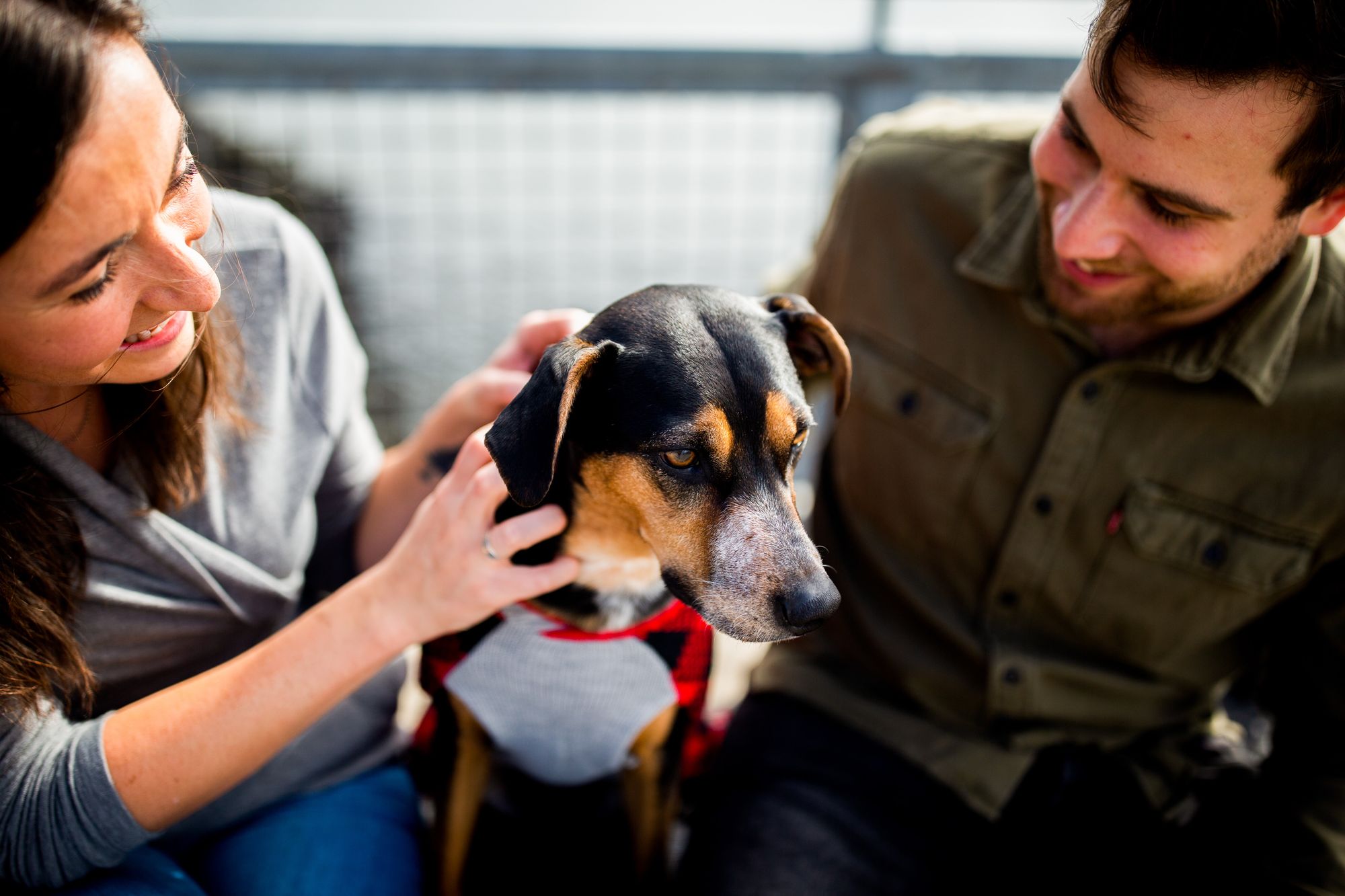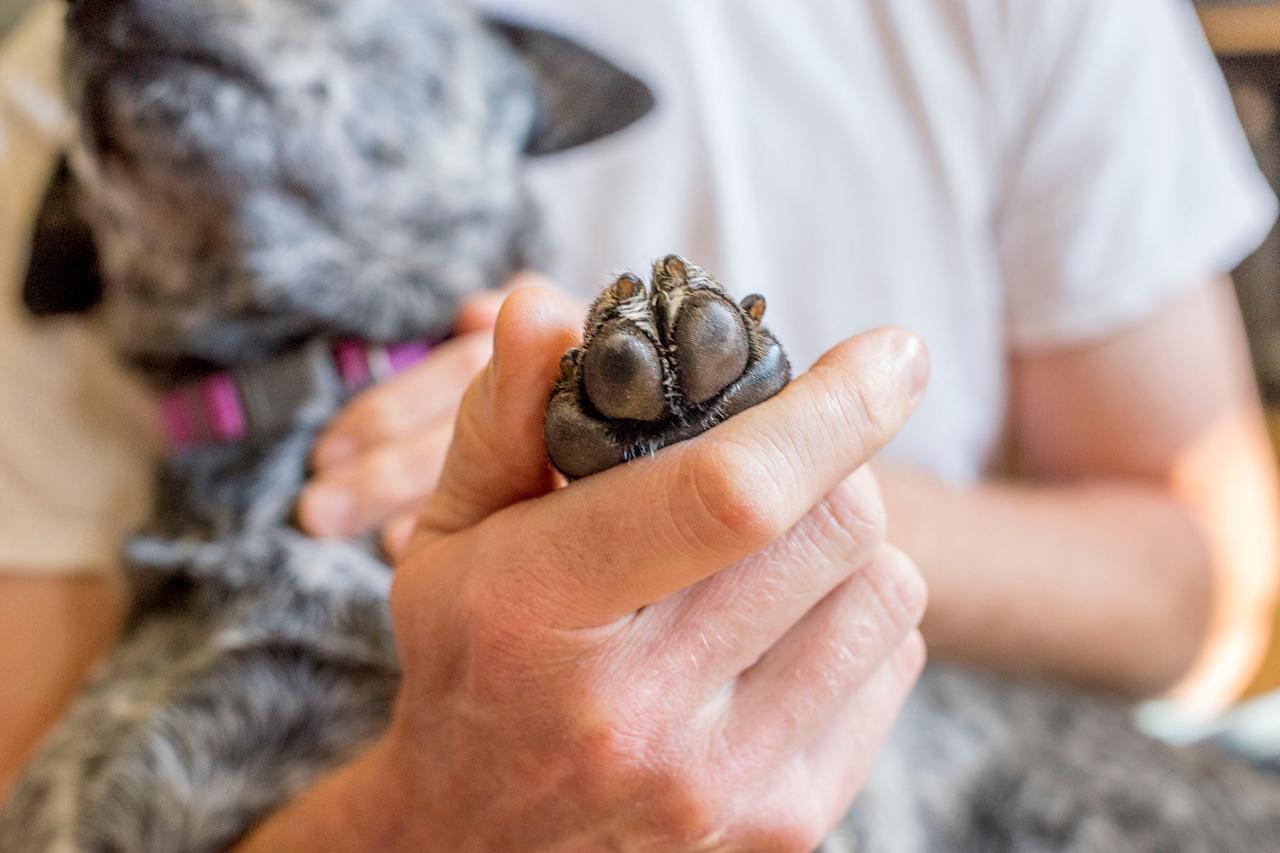Several stories have recently cropped up about animal shelters seeing an increase in pet parents abandoning the pets that they adopted during COVID. Fi works with rescues nationwide to provide collars during a dog’s time in foster care, and extend this safety net to their forever families. When we saw the news, we decided to reach out to our rescue partners to spread awareness of the issue and how to prevent it.
Lockdowns around the world led to a pandemic boom for the billion dollar pet industry. Now, as Covid restrictions lift and workers return to the office, animal shelters are seeing an increase in pet parents abandoning their pets. Take a look. pic.twitter.com/jfchl7LEAX
— Bloomberg Quicktake (@Quicktake) May 9, 2021
We received incredibly meaningful insights from rescues in a variety of states, from Texas to California. The gist? There has been a rise in pandemic pet returns, but there are concrete ways to prevent this.
Fi CEO and Founder Jonathan Bensamoun has a positive take, stating:
"More than 11 million Americans got a pet during the pandemic. That’s a 10% increase in the already 100 million dogs in households in the US. Even though we hear of pandemic puppies getting returned, we believe the vast majority of dog owners will keep their newfound best friend in life."

Below are selected quotes from Fi rescue partners on the trends that they're seeing as well as how to prevent this issue in the first place.
Andrea Kochensparger, President of SPEAK! for the Unspoken and Fi Rescue Partner (Columbus, Ohio area)
"We have seen an increase in people returning dogs. They are not necessarily all dogs that were adopted from us, however. Many of these appear to be shelter dogs, many with bite histories that are difficult to place (depending on the circumstances)."
"Many people seek to return dogs because they are not aware of the many resources out there to help them keep their dog. There are significant training resources, doggie day care for when they return to work or school in person, and online support groups for more challenging issues like separation anxiety and destructive chewing. There is now pet insurance, which is better than it has ever been."
Kim Pluenneke, Intake Coordinator at Mokan Border Collie Rescue and Fi Rescue Partner (Kansas, Missouri)
"When a family wants to return a dog they adopted during the pandemic, we wish they understood the impact this will have on the pet. Dogs have varying abilities to deal with change, they don’t understand why they can’t live with their family anymore, and a shelter environment is a very scary and stressful place...We wish families would pursue other options to allow them to continue to keep their dog and adequately provide for the dog’s needs. Doggy daycare, dog walking services, coming home over the lunch break to provide some exercise, are some examples. Obviously, these things aren’t always feasible, but many times there are options."

Heather Crowe, Founder of the HIT Living Foundation and Fi Rescue Partner (Los Angeles, California)
"No matter how many rescues intensely vetted adopters, asked what their schedule would be like post Covid, what their plans would be for their dog when they went back to work, ultimately we cannot control people and their decisions and we have had a few adopters reach out saying it’s just not working. Luckily for us and our rescues, it has been very minimal but I cannot speak for other rescues and what they might be going through."
Birte Mathis, Treasurer of Charlie's Crusaders Pet Rescue and Fi Rescue Partner (Horn Lake, Mississippi)
"Most of the time, dogs are returned for behavioral issues. I wish people would know to contact us for help when this first starts instead of ‘toughing it out hoping it’s just a phase.’ We would be able to help them with the proper tools and training and hopefully keep the dog."
Mirah Horowitz, Founder and Executive Director of Lucky Dog Animal Rescue and Fi Rescue Partner (Arlington, Virginia)
"We are seeing more numbers of returns, which is to be expected since we saw more than double our normal adoption numbers last year."
"When someone does ask to return, we first have a phone conversation to better understand what the issue is and whether there is something that can help the adopter keep their pet. For example, is the dog getting enough exercise and/or mental stimulation? Would sending the dog to daycare a few days a week help? Or, if they are experiencing separation anxiety, would an appointment with a vet behaviorist help?"

John Byrne, Director of Border Collie Save and Rescue, Inc. and Fi Rescue Partner (Springtown, Texas)
"With the issues brought about by Covid in particular, mental stimulation is key!...We recommend anything that can increase mental stimulation for the dog, with increasing movement and exercise being a welcome bonus. Puzzle feeders when you are leaving the house (also helps with separation anxiety), trick training, group classes, sports (e.g. agility, toss'n fetch, flyball, etc.), daycare, dog walkers, play dates with friend's dogs, breed or temperament specific meet-up groups/clubs, etc. can all go a long way to helping."
“If a person is unwilling or unable to work through the issues that start to appear when they return to work...We will take our alumni dogs back without hesitation, guilt, or condemnation. We will make or find room.”
Angie Wehmeyer, Pack Leader at Wet Noses Foster Paws and Fi Rescue Partner (Tacoma, Washington)
"We have been lucky enough to only have had a few instances of people looking to return or rehome their pups. In those few cases, the owners state that they are going back to work and they do not have the adequate time to give to a dog."
"The dogs that we receive have been abandoned, mistreated, malnourished and forgotten and come to the US in hopes of finding their forever loving home with a chance at stability and security...They not only need food and water to thrive but they deserve love, patience, companionship and commitment for life...Please make a decision based on forever!"

Fi builds cutting-edge technology to elevate the relationship between millions of dog parents and their dogs. The Fi Rescue Program donates collars to rescues nationwide.
If you are a member of the press and would like to connect for a story or set up interviews, reach out to lucy@tryfi.com.






